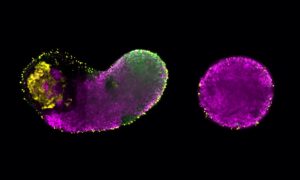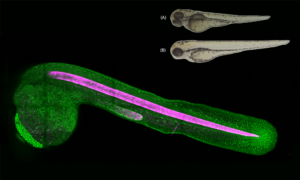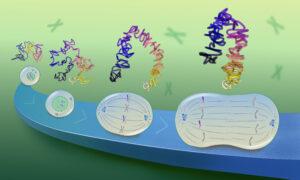
Role reversal: RNA controls protein function
EMBL scientists identify RNA regulating protein behaviour in switch of normal roles

Ribonucleic acids (RNAs) perform many important roles within cells, mainly ensuring that proteins are made in the right quantities at the right times. Usually, the fate of an RNA is controlled by RNA-binding proteins. However, EMBL scientists in the Hentze group have uncovered a new dimension to RNA-protein relationships. Their research, published in the journal Cell, provides a counter-example in which the RNA controls the fate of the protein instead. The authors call this principle ‘riboregulation’.
They discovered that the RNA molecule vtRNA1-1 regulates the function of the protein p62 within human and rodent cells. p62 plays a key role in autophagy – the ‘self-eating’ process by which cells recycle their unnecessary or dysfunctional components. These components are broken down into their biological building blocks, such as amino acids, and used to build new structures within the cell. When vtRNA1-1 binds to p62 it prevents autophagy.
Staff scientist Rastislav Horos observed that the amount of vtRNA1-1 inside a cell varies according to the cell’s nutritional status. When a cell was starved for amino acids, less vtRNA1-1 bound to p62 and autophagy increased. This process allows a cell to increase its supply of vital biological construction material in conditions where resources are sparse.
vtRNA1-1 belongs to the vault RNA family: small RNAs located in poorly understood structures called vaults which are found in cells in a variety of tissues and species. This research reveals the function of a vault RNA and establishes riboregulation as a new principle of biological control that could help deepen our understanding of biology and disease.


